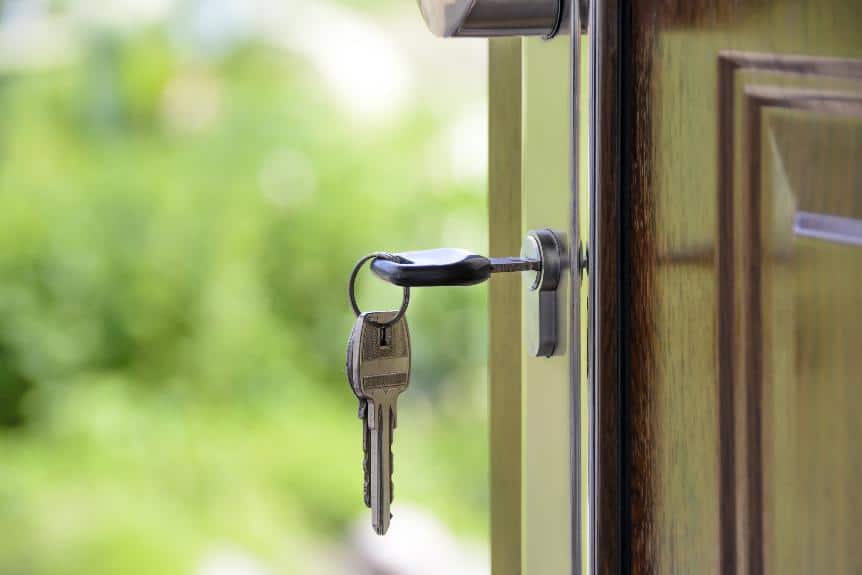I've got some essential security tips to help you bulletproof your WordPress website.
Keeping your site safe from hackers and other online threats is crucial in today's digital world.
In this article, I'll show you how to:
- Regularly update WordPress
- Enable two-factor authentication
- Use strong and unique passwords
- Install a reliable security plugin
- Limit failed login attempts
Follow these tips and rest easy knowing your WordPress site is protected.
Key Takeaways
- Regularly update WordPress core to apply security patches, bug fixes, and new features.
- Enable two-factor authentication to add an extra layer of security.
- Use strong and unique passwords to avoid security breaches.
- Install and activate a reliable security plugin to actively monitor and defend against potential threats.
Regularly Update WordPress Core
I always make sure to keep my WordPress core up to date. Regularly updating the WordPress core is crucial for maintaining a secure website. The WordPress core includes the software's fundamental components, such as the core files, themes, and plugins.
These updates often include security patches, bug fixes, and new features that enhance the overall performance and stability of the website. By staying up to date with the latest WordPress core updates, you can mitigate potential security risks and vulnerabilities.
Outdated versions of the core may expose your website to hackers and malware attacks. It's important to regularly check for updates and apply them as soon as they become available.
Keeping your WordPress core up to date is an essential step in ensuring the security and reliability of your website.
Enable Two-Factor Authentication
Enabling two-factor authentication adds an extra layer of security to your WordPress website, building upon the measures taken to regularly update the core.
Two-factor authentication requires users to provide two forms of identification before gaining access to their accounts. This means that even if a hacker manages to obtain a user's password, they still wouldn't be able to access the account without the second form of authentication, which could be a unique code sent to their mobile device or a fingerprint scan.
This significantly reduces the risk of unauthorized access, as it becomes much more difficult for attackers to bypass this additional security measure.
Use Strong and Unique Passwords
To enhance the security of your WordPress website, it's crucial to use strong and unique passwords.
A strong password should be at least 12 characters long and include a combination of uppercase and lowercase letters, numbers, and special characters. Avoid using common words, personal information, or easily guessable patterns.
Unique passwords are essential because reusing the same password across different accounts increases the risk of a security breach.
To manage multiple passwords effectively, consider using a password manager. These tools securely store your passwords and automatically fill them in when needed.
Remember to update your passwords regularly and never share them with anyone.
Install and Activate a Reliable Security Plugin
Installing and activating a reliable security plugin is an essential step in further fortifying the security of your WordPress website. While using strong and unique passwords is crucial, a security plugin adds an extra layer of protection by actively monitoring and defending against potential threats.
Here are four reasons why you should install and activate a reliable security plugin:
- Malware Scanning: A security plugin can regularly scan your WordPress files and database for any signs of malware or suspicious activity, helping you detect and remove potential threats.
- Firewall Protection: With a security plugin, you can implement a firewall that filters out malicious traffic and prevents unauthorized access to your website.
- Login Security: A security plugin can enforce strong password policies, limit login attempts, and provide two-factor authentication, ensuring that only authorized users can access your WordPress dashboard.
- Security Alerts and Notifications: By setting up notifications, you can receive alerts about any security issues or suspicious activity on your website, allowing you to take immediate action to protect your site.
Limit Failed Login Attempts
To enhance the security of your WordPress website, it's important to set limits on the number of failed login attempts.
By implementing this measure, you can prevent brute-force attacks and protect your site from unauthorized access. Limiting the number of failed login attempts helps to deter hackers who rely on automated tools to guess passwords.
When a user exceeds the allowed number of login attempts, their IP address can be temporarily blocked or banned from accessing the site. This adds an extra layer of security by making it difficult for attackers to gain access to your site.
Additionally, you can configure your WordPress site to send notifications when multiple failed login attempts occur, allowing you to monitor suspicious activity and take appropriate action.
Frequently Asked Questions
How Often Should I Update the WordPress Core?
I update the WordPress core regularly to ensure the latest security patches and feature enhancements. It's important to stay up-to-date to protect my website from potential vulnerabilities and maximize its performance.
What Is Two-Factor Authentication and How Does It Enhance Security?
Two-factor authentication is an extra layer of security for WordPress. It requires a second form of verification, such as a code sent to your phone, in addition to your password. This adds an additional level of protection against unauthorized access.
Are There Any Recommended Practices for Creating Strong and Unique Passwords?
Yes, there are recommended practices for creating strong and unique passwords. It is important to use a combination of uppercase and lowercase letters, numbers, and special characters. Avoid using personal information or common phrases.
What Are Some Reliable Security Plugins That Can Be Used for WordPress?
Some reliable security plugins for WordPress include Wordfence, Sucuri, and iThemes Security. They provide features like malware scanning, firewall protection, and login security. These plugins are essential for safeguarding your website against potential threats.
Can Limiting Failed Login Attempts Help Prevent Unauthorized Access to My WordPress Site?
Limiting failed login attempts can help prevent unauthorized access to my WordPress site. By implementing this security measure, potential attackers are deterred and the risk of brute force attacks is reduced.




